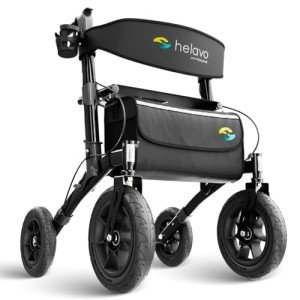15 Gifts For The Durable Walker Lover In Your Life
Choosing a Durable Walker: Your Guide to Enhanced Mobility and Independence
Navigating life's day-to-day challenges can become increasingly hard as we age or face health problems that restrict mobility. For lots of, a durable walker can be a game-changer— providing not just physical support however also increasing confidence. This post will explore the numerous kinds of durable walkers offered, their crucial features, upkeep suggestions, and how to select the right walker for your requirements.
What is a Durable Walker?
A durable walker is a mobility aid developed to provide stability and support for people with minimal movement abilities. Unlike standard walkers, durable walkers are built with robust materials and engineering created for regular use, making them ideal for users who require a reliable aid for daily activities.
Types of Durable Walkers
When choosing a durable walker, it's necessary to understand the different types readily available. Below is a table detailing common kinds of durable walkers, their features, and perfect use cases.
Type of Walker
Features
Suitable For
Standard Walker
Lightweight, non-wheeled design, adjustable height
Individuals requiring basic support
Wheeled Walker
2 front wheels, braking system
Users requiring additional mobility in the home
Heavy-Duty Walker
Durable frame for heavier weight capacity
Overweight individuals or those with greater mobility requires
Rollator Walker
Four wheels, seat, hand brakes
Users looking for resting choices throughout walks
Folding Walker
Retractable design for easy transport
Individuals who take a trip regularly or have limited storage
Knee Walker
Knee support for non-weight-bearing legs
People recuperating from foot or ankle injuries
Secret Features to Consider
When selecting a durable walker, a number of features must be taken into account to guarantee it satisfies your particular requirements. Below is a list of vital features:
- Weight Capacity: Ensure the walker can support the user's weight safely.
- Height Adjustability: Look for walkers with adjustable heights to offer appropriate ergonomic support.
- Product: Aluminum walkers are lightweight and tough, while steel walkers use added resilience.
- Wheels: Consider walkers with wheels for easier maneuverability if the user is mobile enough.
- Grip Handles: Ergonomically developed grip handles boost convenience and stability.
- Storage Options: Many walkers included attached seats or storage bags for convenience.
- Braking System: Essential for wheeled walkers to make sure stability throughout usage.
Benefits of Using a Durable Walker
Purchasing a durable walker includes numerous advantages. Here are a couple of:
- Increased Stability: The main function of a walker is to offer support and stability.
- Enhanced Confidence: Using a walker can help users feel more secure in moving their environment.
- Boosted Mobility: Walkers can help individuals preserve mobility and independence.
- Lowered Fatigue: A walker minimizes tension on joints and muscles throughout movement.
- Improved Posture: They typically promote much better posture and positioning, which can minimize back pain.
How to Maintain Your Durable Walker
To guarantee the longevity and security of a durable walker, routine upkeep is crucial. Here are some ideas:
- Check for Damage: Inspect for any cracks or loose parts routinely.
- Clean Regularly: Wipe down deals with and frame with a moderate cleaner to keep it sanitary.
- Lubricate Wheels: For wheeled walkers, use lubricant to prevent squeaking and make sure smooth movement.
- Height Adjustments: Periodically examine if the height is still ideal and adjust appropriately.
- Tighten up Screws: Regularly examine screws and bolts to ensure they are tight and secure.
Frequently Asked Questions (FAQs)
1. How do I know which type of walker is best for me?
Choosing the right walker depends on your particular mobility needs, weight capacity, and comfort preferences. Consulting with a health care specialist can supply customized insights.
2. Can I utilize a walker on irregular surfaces?
While numerous durability walkers are designed for various terrains, it's a good idea to utilize them on flat surface areas when possible. Try to find walkers with bigger wheels for much better performance on unequal surfaces.
3. Exist walker's covered by insurance?
In a lot of cases, Medicare and other insurance plans cover durable walkers with a healthcare provider's prescription. Contact your insurance business for particular details.
4. Can walkers be used outdoors?
Lots of durable walkers appropriate for outdoor usage. However, selecting one with larger wheels and good suspension will improve the experience on uneven terrains like turf or gravel.
5. How much weight can a heavy-duty walker support?
Heavy-duty walkers typically support in between 300 to 600 pounds, depending on the model. Always check mymobilityscooters.uk .
A durable walker can considerably improve the lifestyle for people with mobility obstacles. By understanding the different types, features, and maintenance guidelines, users can make an informed choice that best satisfies their requirements. With the ideal walker, individuals can gain back mobility, self-reliance, and confidence in their everyday lives. As constantly, talking to a healthcare specialist for tailored recommendations is motivated to ensure the very best suitable for mobility needs.
